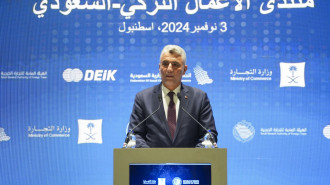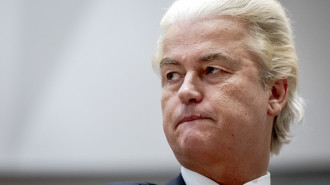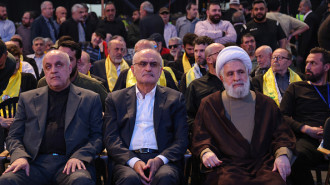Doping at the Hajj? 100,000 drug pills found on Mecca-bound Saudi pilgrimage buses
Buses transporting pilgrims in Saudi Arabia have been caught harbouring thousands of illegal drugs, customs officials said on Sunday.
Along with Muslims travelling to Mecca for the voluntary Umrah pilgrimage, customs officials found 184,737 Fenethylline tablets - better known by the drug's brand name Captagon - on two buses traveling across the kingdom’s northwestern border.
Halat Ammar customs head Mohammed Qaisi told Arab News that smugglers had hidden the pills "in an artistic way" in the lining of two bags on two separate buses, transporting 78 pilgrims in total.
Pilgrims are currently flocking to Saudi Arabia's holy sites to make the Umrah pilgrimage during the holy month of Ramadan, which began earlier this month.
Saudi officials say the Umrah and obligatory Hajj pilgrimage seasons witness a dramatic rise in illegal drug smuggling efforts every year, with smugglers reportedly using pilgrim buses as a cover to move narcotics and other banned substances.
Captagon abuse is common throughout the Middle East, with counterfeit versions of the drug (mostly amphetamine-based rather than fenethylline) readily available in many Arab countries.
The drug was invented in Germany in the 1960s to treat ADHD and sleep disorders. A highly addictive substance, it was banned throughout most of the world in the 1980s.
Saudi Arabia consumes more of the drug than anywhere else in the world.
But Syrian-produced Captagon has also played a role in the country’s eight-year civil war, with profits from the multimillion-dollar trade in recent years being used to fund weapons.
The Syrian regime, extremist groups and rebel factions have been accused of using the stimulant to keep fighters on the battlefield for longer.
Fighters who take it say it helps them stay awake for days and that it numbs their senses, allowing them to kill with abandon.
Follow us on Twitter: @The_NewArab







 Follow the Middle East's top stories in English at The New Arab on Google News
Follow the Middle East's top stories in English at The New Arab on Google News


